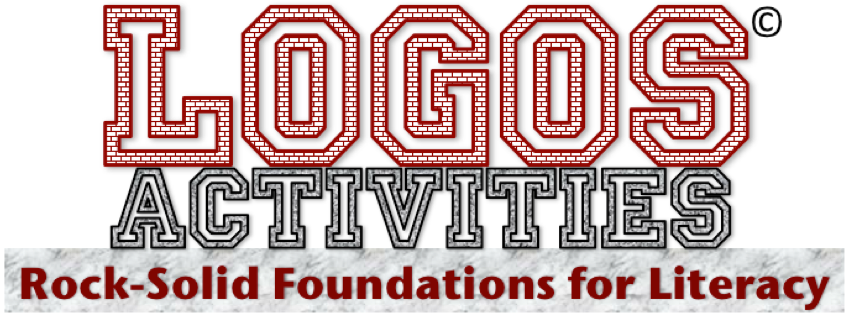Welcome!
We are glad you're here.
We hope you find all you're seeking!
Please contact us with any questions or comments.

We are glad you're here.
We hope you find all you're seeking!
Please contact us with any questions or comments.

Because written language is based on spoken language, literacy development builds off of language development.
Maximal literacy development -- reading and writing skills -- depends heavily on some particular skills related to spoken language and particular skills related to written (language) symbols.
Spoken language has various levels: Our discourse -- conversation or written texts -- is made of clauses. Clauses are made of phrases. Phrases are made of words. Words are made of syllables. Syllables are made of sounds -- the sounds of language, which are also called phonemes.
In order to achieve maximal literacy skills, students need to develop skills at all levels of spoken language, from oral language discourse skills (listening comprehension, speaking composition, story-telling and retelling abilities) all the way down to phoneme awareness, which includes the understanding that spoken words can be "split up" into individual sounds.
In written language, the written symbols and conventions represent the sounds of spoken language. One of the key examples of this is that written letters represent the sounds (or phonemes) of spoken language.
In order to develop maximal literacy skills, students need to acquire certain Written Symbols skills, such as recognition of the letters when written in a variety of fonts, knowledge of the connections between uppercase and lowercase letters, letter names and the sounds that the letters represent, and how to form written letters in order to write the letters in words.
In order to develop maximal literacy skills, students need to understand the point of the alphabet. That is, after acquiring an understanding that words are made sounds (phoneme awareness) and that letters are associated with sounds, it is necessary for students to have explicit understanding that those letter sounds are indeed the same sounds that words are made of. That may seem to be an obvious fact if you are a skilled reader, but it is not necessarily obvious to learners, especially those who are struggling or have struggled to develop reading or writing skills.
The strategies, activities, and recommendations provided during Logos workshops include ways for teachers to help students develop skills at various levels of Spoken Language; Written Symbols skills; and initial understanding of the Alphabetic Principle.
While it is necessary for students, especially those younger than approximately age 8, to have begun to develop the particular skills addressed in Logos before going on to Word Revelation, other programs or approaches can help students develop these same skills. That is, it is not necessary for students to have completed the specific activities included in Logos before using Word Revelation.
Participants in Logos workshops receive a binder of Logos materials and learn how to use them during the workshop.